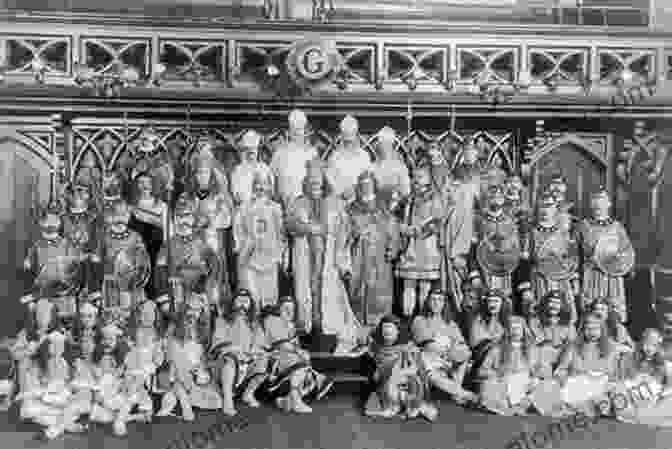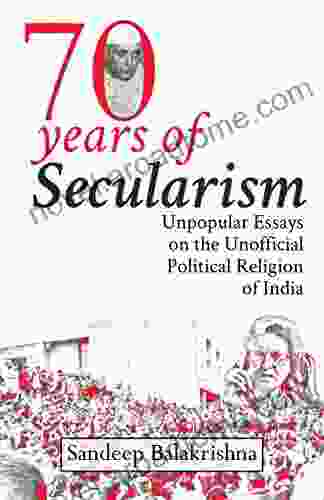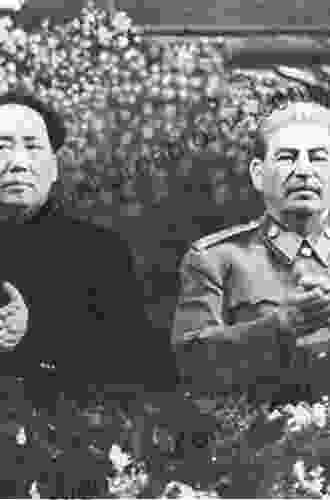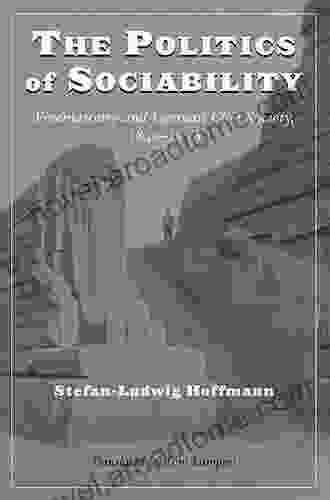Freemasonry and German Civil Society, 1840-1918: A Social History of Popular Culture

4.6 out of 5
| Language | : | English |
| File size | : | 2229 KB |
| Text-to-Speech | : | Enabled |
| Screen Reader | : | Supported |
| Enhanced typesetting | : | Enabled |
| Print length | : | 424 pages |
| X-Ray for textbooks | : | Enabled |
The history of Freemasonry in Germany during the 19th century is a captivating and multifaceted tale that has left an indelible mark on the country's social, cultural, and political landscape. This article delves into the intricate relationship between Freemasonry and German civil society from 1840 to 1918, exploring the ways in which Freemasons shaped and were shaped by the society around them.
Freemasonry in Germany
Freemasonry, a fraternal organization characterized by its emphasis on secrecy, symbolism, and moral teachings, first emerged in Germany in the early 18th century. Over the course of the 19th century, Freemasonry experienced a significant surge in popularity, becoming an integral part of German civil society. Masonic lodges were established in major cities and towns across the country, attracting a diverse membership that spanned the social and economic spectrum.
Masons and Society
Freemasons played a prominent role in German society, particularly in the areas of education, philanthropy, and public life. Many Masons were active in local politics and served as mayors, councilors, and members of parliament. They established schools, hospitals, and charitable organizations, providing essential services to their communities. Freemasons also promoted intellectual and cultural pursuits, founding libraries, publishing newspapers, and organizing lectures and debates.

The Impact of Freemasonry
The influence of Freemasonry on German society was both profound and multifaceted. Freemasons helped to foster a sense of civic responsibility and community engagement. They promoted Enlightenment ideals of reason, tolerance, and individual liberty, which played a significant role in shaping German political and social thought. Freemasonry also provided a space for men of different backgrounds to come together and exchange ideas, fostering a spirit of mutual respect and cooperation.
Popular Culture and Freemasonry
Freemasonry became a popular subject in German literature, art, and music. Freemasons were often portrayed as symbols of secret knowledge and power, and their rituals and symbols were the subject of fascination and speculation. Freemasonry also influenced popular culture in other ways, such as through the creation of Masonic-themed fashion and merchandise.
Decline and Suppression
The outbreak of World War I in 1914 marked a turning point for Freemasonry in Germany. The war brought about a rise in nationalism and suspicion of secret societies, and Freemasonry was increasingly targeted by anti-Semitic and right-wing groups. In 1933, the Nazi regime banned Freemasonry along with other fraternal organizations, and Masonic lodges and property were seized. Freemasonry was not officially rehabilitated in Germany until after the Second World War.
The history of Freemasonry in Germany during the 19th century is a rich and complex one that offers valuable insights into the relationship between secret societies and civil society. Freemasons played a significant role in shaping German society, contributing to its intellectual, cultural, and political development. Their legacy continues to be felt in Germany today, and the study of Freemasonry remains an important field of historical inquiry.
4.6 out of 5
| Language | : | English |
| File size | : | 2229 KB |
| Text-to-Speech | : | Enabled |
| Screen Reader | : | Supported |
| Enhanced typesetting | : | Enabled |
| Print length | : | 424 pages |
| X-Ray for textbooks | : | Enabled |
Do you want to contribute by writing guest posts on this blog?
Please contact us and send us a resume of previous articles that you have written.
 Book
Book Novel
Novel Page
Page Chapter
Chapter Text
Text Story
Story Genre
Genre Reader
Reader Library
Library Paperback
Paperback E-book
E-book Magazine
Magazine Newspaper
Newspaper Paragraph
Paragraph Sentence
Sentence Bookmark
Bookmark Shelf
Shelf Glossary
Glossary Bibliography
Bibliography Foreword
Foreword Preface
Preface Synopsis
Synopsis Annotation
Annotation Footnote
Footnote Manuscript
Manuscript Scroll
Scroll Codex
Codex Tome
Tome Bestseller
Bestseller Classics
Classics Library card
Library card Narrative
Narrative Biography
Biography Autobiography
Autobiography Memoir
Memoir Reference
Reference Encyclopedia
Encyclopedia Robert Taber
Robert Taber Shreekala Ram
Shreekala Ram Vanessa Gardener
Vanessa Gardener Rachel Allen
Rachel Allen Richard Gordon
Richard Gordon Salah Gariballa
Salah Gariballa Ralph Blumenthal
Ralph Blumenthal Ryan Ylitalo
Ryan Ylitalo Tasha N Dubriwny
Tasha N Dubriwny Rachel Gregory Ms Cns Atc Cscs
Rachel Gregory Ms Cns Atc Cscs Robert L Moore
Robert L Moore Richard M Cohen
Richard M Cohen Rick Baker
Rick Baker Robin Cooper
Robin Cooper Tom Chiarella
Tom Chiarella Samantha Freeman
Samantha Freeman Roy Kistner
Roy Kistner Russell L Weaver
Russell L Weaver Robin Heydon
Robin Heydon Rachel Brupbacher
Rachel Brupbacher
Light bulbAdvertise smarter! Our strategic ad space ensures maximum exposure. Reserve your spot today!

 Troy SimmonsUncork the Ultimate Winelands Adventure: A Journey to Indulge, Explore, and...
Troy SimmonsUncork the Ultimate Winelands Adventure: A Journey to Indulge, Explore, and...
 Chase SimmonsMore Than Just a Pretty Face: Uncovering the Hidden Depths of Women's Beauty
Chase SimmonsMore Than Just a Pretty Face: Uncovering the Hidden Depths of Women's Beauty Tennessee WilliamsFollow ·8.3k
Tennessee WilliamsFollow ·8.3k Edgar HayesFollow ·14.6k
Edgar HayesFollow ·14.6k Neil GaimanFollow ·11k
Neil GaimanFollow ·11k Chandler WardFollow ·14k
Chandler WardFollow ·14k Allen GinsbergFollow ·7.1k
Allen GinsbergFollow ·7.1k Cody RussellFollow ·4k
Cody RussellFollow ·4k Italo CalvinoFollow ·13.7k
Italo CalvinoFollow ·13.7k Ian PowellFollow ·14.1k
Ian PowellFollow ·14.1k

 Eli Brooks
Eli BrooksOver 700 Organic Remedies Shortcuts And Tips For The...
: Embracing the Power of...

 Carter Hayes
Carter HayesUnveiling the Unofficial Political Religion of India: A...
Embark on an...

 Colin Richardson
Colin RichardsonOf Colors and Critters: A Journey Through the Animal...
In the tapestry of...

 Harry Hayes
Harry HayesUnveiling the Hidden Truths: Mao, Stalin, and the Korean...
Step into the enigmatic realm of the 20th...

 George Bernard Shaw
George Bernard ShawBand 1b Pink: A Journey Through the World of Reading
Band 1b Pink is a...
4.6 out of 5
| Language | : | English |
| File size | : | 2229 KB |
| Text-to-Speech | : | Enabled |
| Screen Reader | : | Supported |
| Enhanced typesetting | : | Enabled |
| Print length | : | 424 pages |
| X-Ray for textbooks | : | Enabled |










